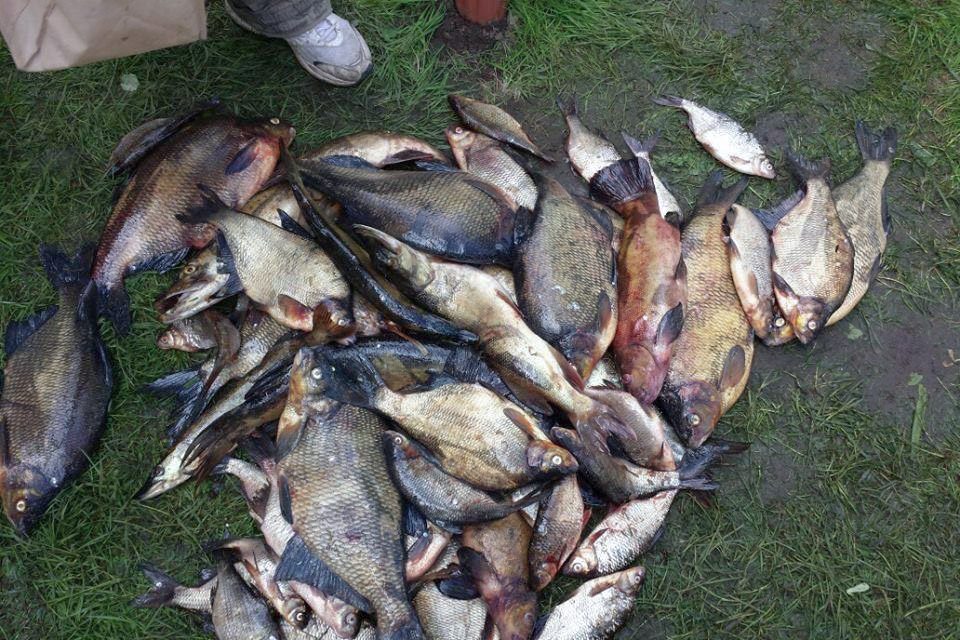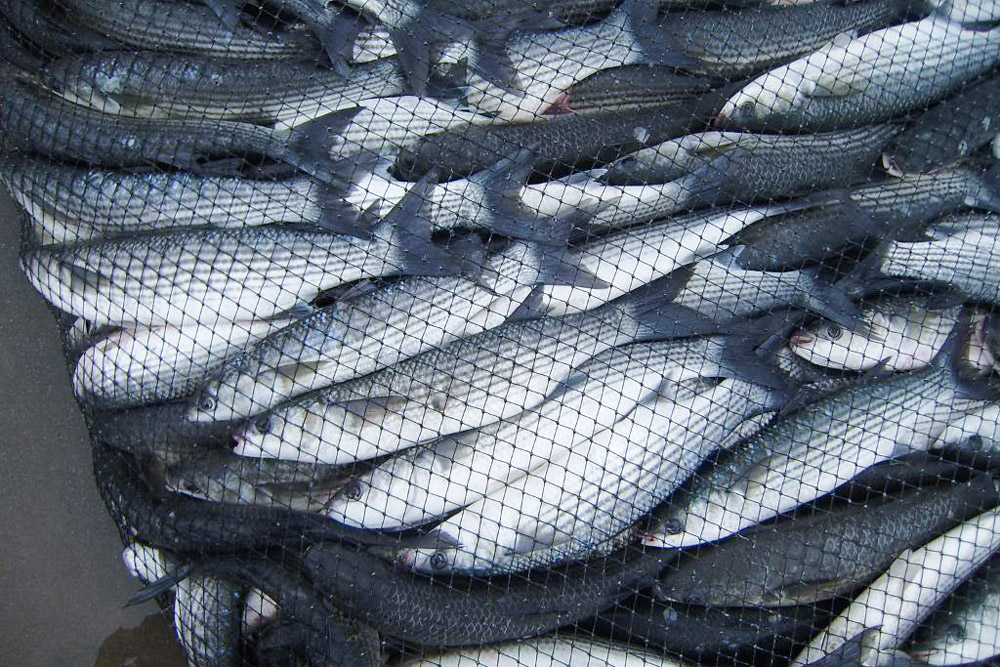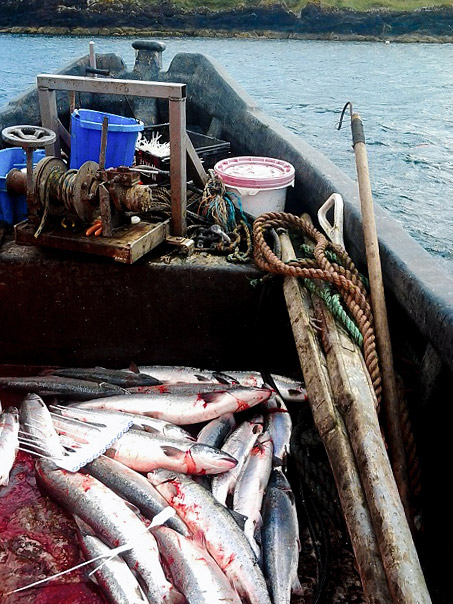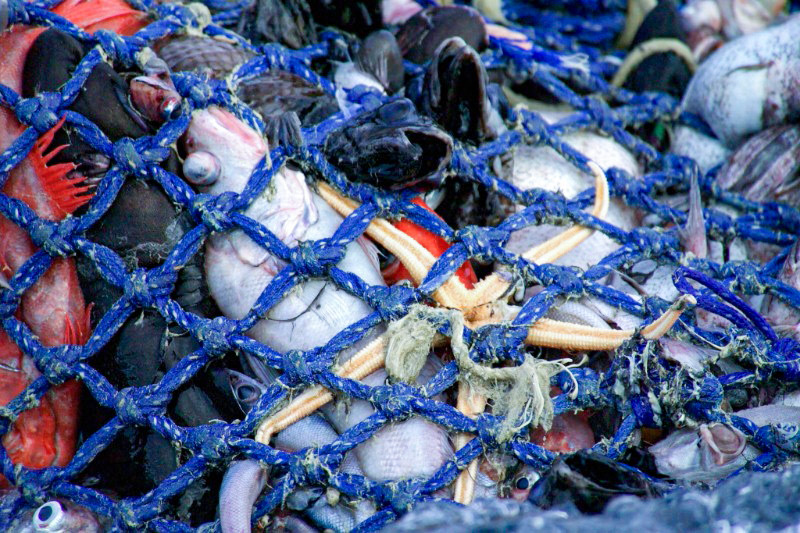The state of our waters – an Irish angling perspective
Experienced freshwater ecologist and lifelong angler Ross Macklin gives his honest account of modern Irish angling
Issue 6 (Sep – Oct 2015) Ross Macklin
It is the year of 2015 and the low pressure fronts hit Irish shores hard and heavy, akin to an Iwo Jima bunker. The angling inhabitants of Ireland peer with forlorn faces at the 50 Shades of Grey that passed in 24 hours, signifying a very different summer from the two previous. Indeed the weather is not the only running topic that invades angling discussions on our banksides and shorelines in changing times. The state of our waters mirrors the damning report on the Status of EU Protected Habitats in Ireland, which was, in summary, poor. Some say the state of our waters is an ecumenical matter, and indeed perhaps only divinity can shape our ends but many believe the solution is simpler than that. First let us examine the current situation, at least as I and the majority of anglers see it, in order to define what the main protagonists are…

Our rivers start high up in the mountains as torrents of clean water, full of speckled trout that have developed in evolution for millenia. For thousands of years they have survived and I hope a thousand more they will last, perhaps in the last piscatorial Nirvana there remains. Downhill and downstream, population growth and land use practices add weight to a laden camel that has a long and weary way to travel before reaching the estuary. More people, more energy, more waste; inevitably everything goes into the water. Before long the metaphoric camel is on his knees. With open borders and trade, invasive species unpacked their bags and went viral, effectively becoming a new concept to most people. While one might forgive some of these terrifying problems that are a product of living and economics, other problems outside of globalisation start with the nature and nurture of the people themselves. Through a lack of education and laws that are ineffective, new anglers arrived and took pike, perch, bream and other coarse fish by the net full. It cannot be argued that exploitation of the coarse stock was relatively limited before the turn of the millennium.
“The net result was millions of euro lost to the economy and a country that is no longer angling tourism friendly”
The net result was millions of euro lost to the economy and a country that is no longer angling tourism-friendly. Some of these folk argued that because the State killed pike they should be able to do it… and yet the State fined the same anglers for an act they undertook themselves under the guise of salmonid stock management. A divine comedy, many said, was unfolding. Many anglers cried into their hands while watching the stage and could not believe the state of affairs. The well-being of the people sharing the resource was being diminished at a rate equivalent to the stock and something occurred to us all; the environment is all we have and we need rules but, most importantly, hard enforcement of the law when the will of people cannot be relied upon. The alternative that is developing is the brutal degradation of our rivers, lakes and seas.
Moving towards the marine environment, the opening of the Irish box, meant the plundering of rich seas that have systematically, with scientific evidence, been denuded of fin and gill. This is not only a removal of the fish but the very habitat to which they rely by the dredging away of the reefs and nurseries, the scars of which are visible all around our shores. Meanwhile the public see gleaming white fish fillets on branded boxes and laughing seafood chefs, with a minority (such as Rick Stein) reminding us of the fragility of the resource. Somewhere in the backs of our minds there is an anxious thought that is overshadowed by consumerism, but we all know something is not quite right.


“Meanwhile the public see gleaming white fish fillets on branded boxes and laughing seafood chefs”
The Irish Conservation Box (ICB) of 2004, it may be forgiven, was not intended as an oxymoron. The ICB which extends along the 200m contour zone replaced the Irish Box which encompassed a much larger rectangular 50 mile conservation limit around the coast of Ireland. In summary, the change means more large international commercial vessels can fish in a much larger area of Irish coastal water and the word ‘conservation’ has been added just to confuse us. Bizarre, but then again we must remember that currency is all-powerful and apathy is an easy way out to dampen the harsh reality. Indeed it epitomises why I rarely use the word conservation today. I liken the word to a beaten dog that gets dressed up and jumps through hoops for the audience during the day and sleeps in a dark unhappy place during the night. Coupled with the pillaging by international vessels of the sand banks, the long-lining of rough ground, the systematic destruction of wreck fishing by gill nets, tangle netting of rays on the sand banks, pair trawling of the aggregations of mullet before seaward migration and, most recently, the illegal netting of bass by unlicensed vessels and I am out of breath. One last mention for the migratory salmon snapped up in the draft nets busy at work in the majority of our large river estuaries, because even after the official banning of drift nets it’s just as easy to get them right on the doorstep.

“plundering of rich seas… is not only a removal of the fish but the very habitat to which they rely”
So, is there a solution to this madness and mayhem? Indeed there is. Everyone reading this can educate themselves and exercise their democratic right to demand governments to save our rivers, lakes, estuaries, harbours and offshore nurseries by officially lobbying for harsher penalties for laws broken, making the habitats reserves for fish and / or Marine Protected Areas. Draft netting should be banned outright. Rays and sharks should be protected in all our bays and estuaries. Mullet and bass should be protected equally as they also are economically important as both an angling and biodiversity asset. In our rivers and lakes fines should be grossly increased and the sentence commensurate to the impact to the environment and the fishery. A non-governmental organisation with governmental support equivalent to the Angling Trust in the U.K. should be created to preserve the national asset of angling. The engagement of the youth in this industry will ensure that they have a sense of ownership of what belongs to all of us anglers and preserve it into the future.
Things need to change. Things must change, before it really is too late.
Ross Macklin
